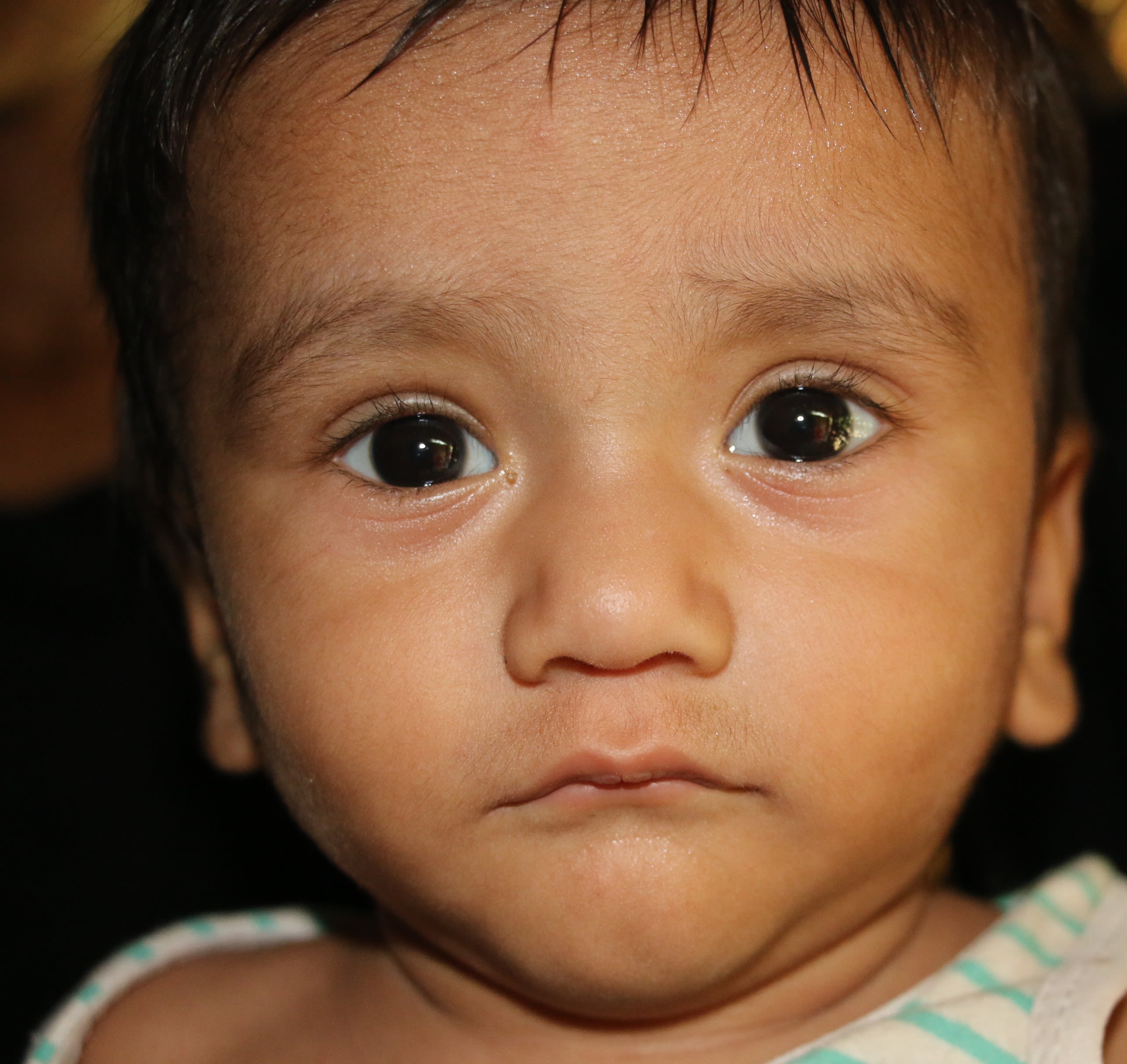The High Cost of Hunger
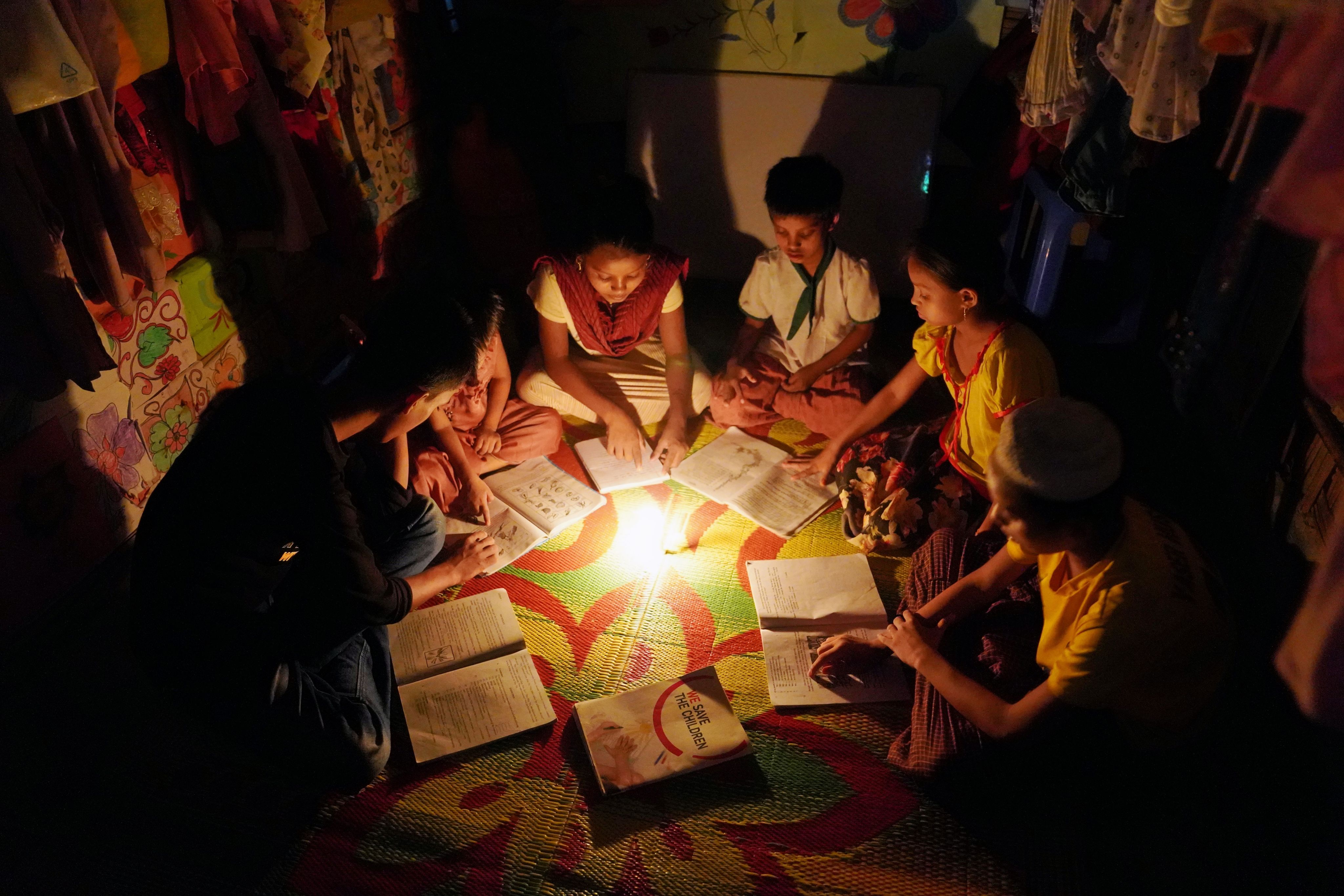
In the world’s largest refugee camp in Cox’s Bazar, Bangladesh, Rohingya refugees live in limbo, feeling forgotten by the outside world six years after the crisis.
August 25th 2023, marks 6 years since more than 700,000 Rohingya people fled violence in Myanmar to seek safety in Bangladesh.
Most arrived carrying nothing but the clothes on their back and in a state of shock, grief and exhaustion.
Continue scrolling or click the menu along the top to read the stories of Rohingya children and families, and how Save the Children has been able to help.
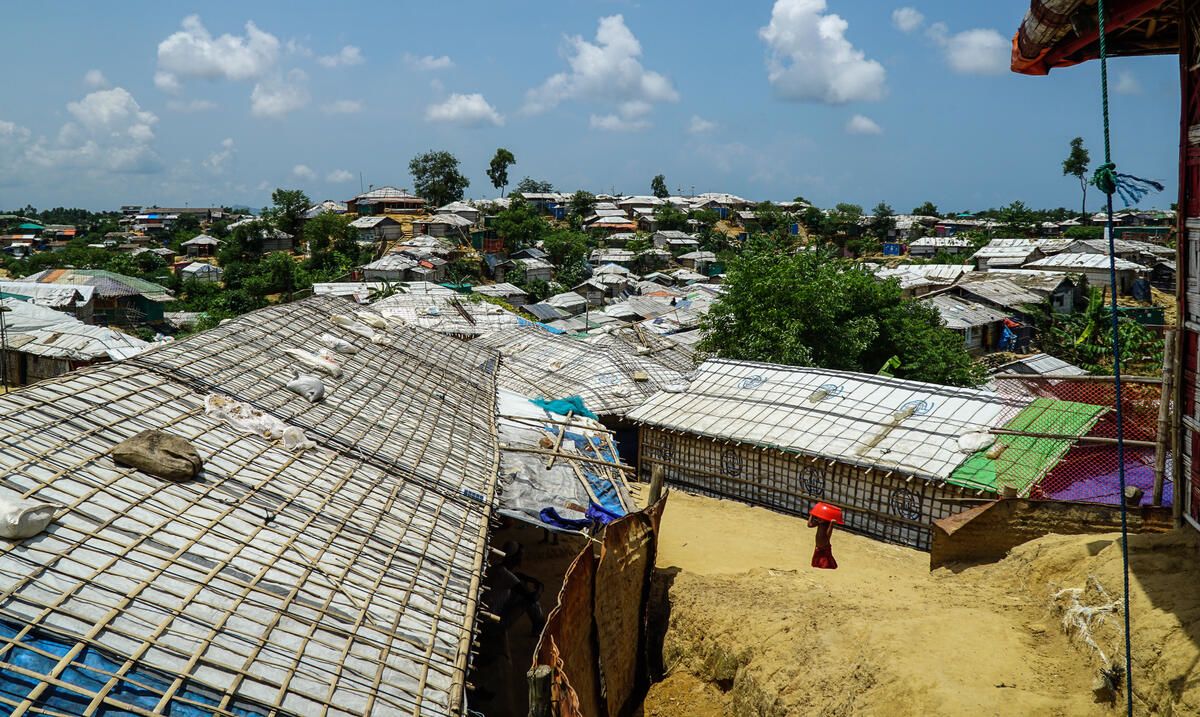
Cox’s Bazar, in the southeast of Bangladesh, is now home to the largest refugee settlement in the world, with almost 1 million Rohingya refugees, most of whom have now been living in the camps for six years.
The Impact on Families & Children
Since 2017, Rohingya refugee children have gone without formal education, parents and caregivers have gone without employment, and all refugees have become more vulnerable to injury from fires, flooding, and rising insecurity.
As a result, many families are reliant on food rations and need access to safe water and healthcare.
Food assistance for the Rohingya refugees has been cut by a third in just 5 months - it's now only $8 a month per person, or $0.27 cents a day. This is because of a massive funding shortfall for the World Food Programme.
The 500,000 Rohingya children living in Cox's Bazar are worried about their futures. They need hope.
Now is the time to show them that the international community has not turned its back on them. Read the stories of Sultana*, Rakib*, Ayaz* and Antora*.
Note: All text written in italics are direct quotes.
Please donate to our Children´s Emergency Fund.

Sultana*and Rakib*'s Story


Sultana*,7, and Rakib*,12, live with their 31-year-old mother, Mahbuba*, in Cox’s Bazar.
In 2017, their father was killed during the unrest in Myanmar and, soon after, the children and their mother fled to Bangladesh in search of a safe place to live.
My father was shot dead [in Myanmar]. We left our home with that fear and came to Bangladesh.
Now, as the sole provider for the family, their mother struggles to find enough food in the refugee camp for her children to eat.
We used to eat fresh fish in our meals before [the food cut]. Now, we can’t even buy enough lentils. Sometimes, I feel angry and sad when I see just only rice for a meal.

Sultana*, 7, and Rakib*, 12, play with small spice containers in their family's kitchen in Cox's Bazar, Bangladesh. Photo: Rubina Hoque Alee / Save the Children.
Sultana*, 7, and Rakib*, 12, play with small spice containers in their family's kitchen in Cox's Bazar, Bangladesh. Photo: Rubina Hoque Alee / Save the Children.
Food rations have made it even more difficult for the family. Mahbuba worries that her family will be even more hungry in the future having heard rumours of further food ration cuts from $8.00 USD to $6.00 USD per person per month.
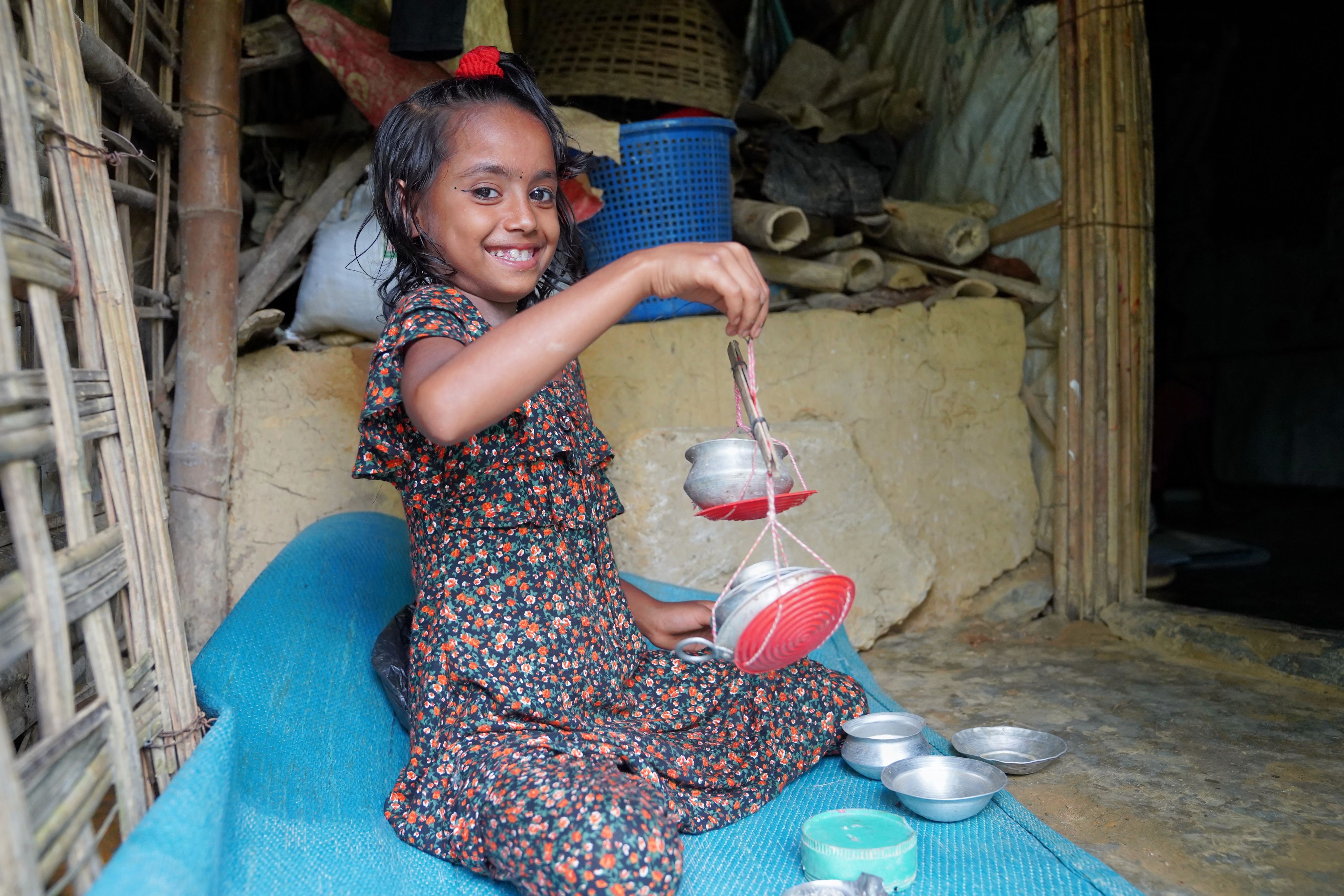
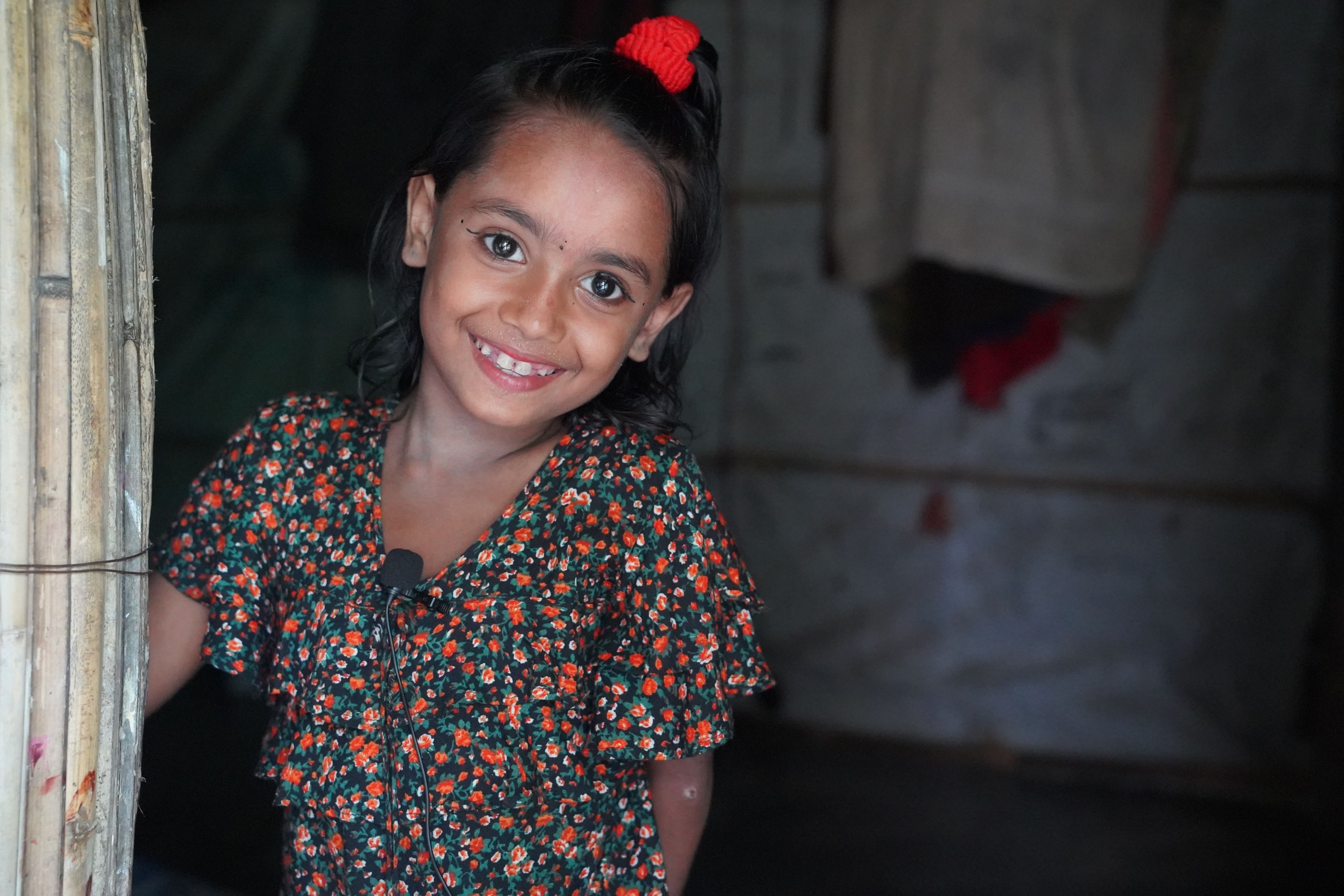
How we are supporting Sultana & Rakib's family
In the refugee camp, Rakib and Sultana regularly visit one of our Child-Friendly Spaces. There, Rakib and Sultana take part in activities like making crafts and playing games with other children.
The children also attend one of our Learning Centers and their mother – Mahbuba – volunteers with us in the refugee camp, for which she receives monetary compensation.
Donate to our Children's Emergency Fund and support children like Sultana and Rakib.
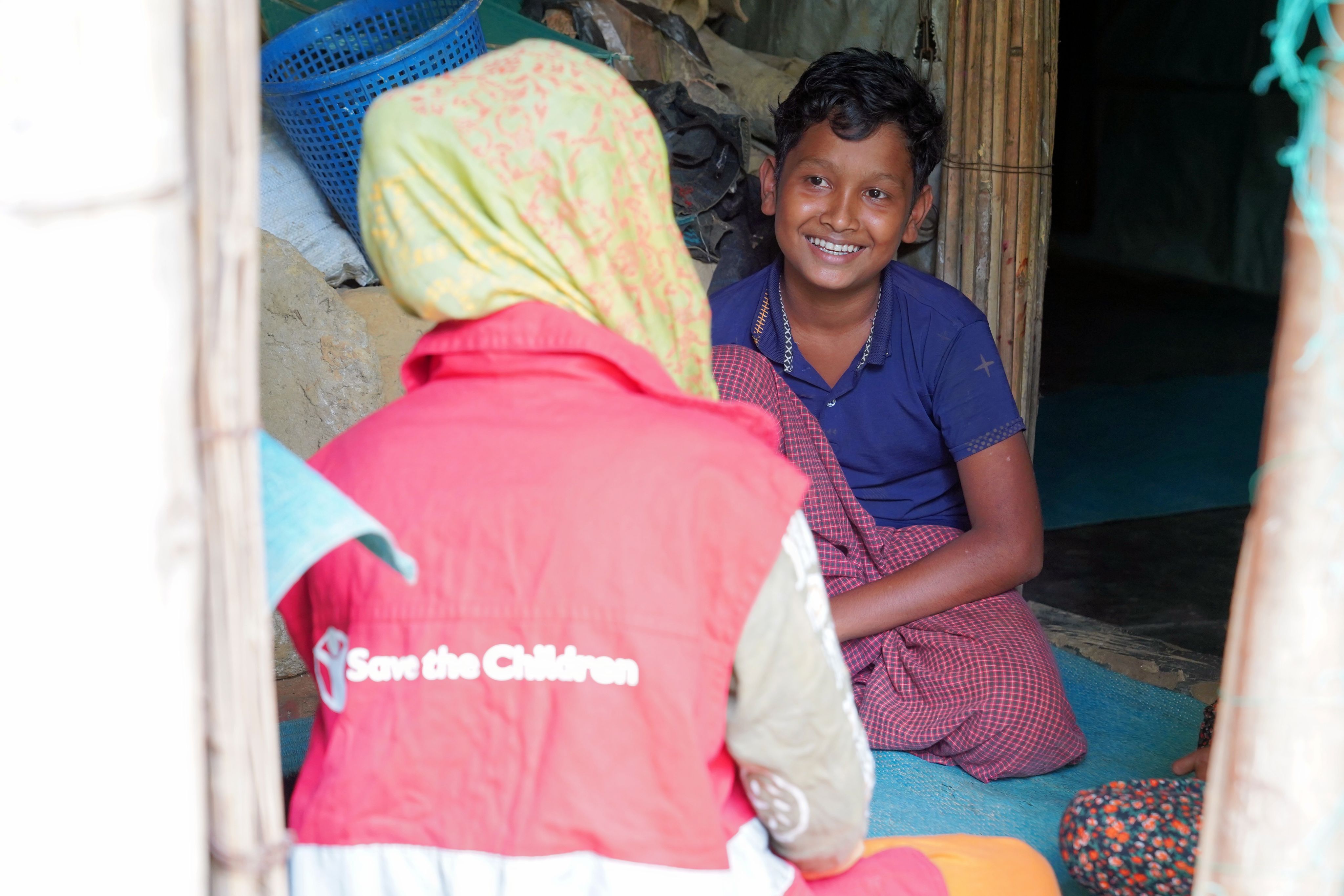
Ayaz*'s Story


15-year-old Ayaz* lives in a cramped, single-room house in Cox’s Bazar, Bangladesh.
His father passed away six years ago and, as a result, his mother became the sole provider of the family.

A portrait of Ayaz*, 15, in Cox's Bazar, Bangladesh. Photo: Saddam Husen / Save the Children.
A portrait of Ayaz*, 15, in Cox's Bazar, Bangladesh. Photo: Saddam Husen / Save the Children.
Due to a lack of income, the family is limited to purchasing food staples such as rice and oil.
Nowadays, I mostly prepare potato soup and vegetables. Occasionally, I rely on our
neighbours’ kindness like today when I borrowed fish to cook.
With this lack of food, Ayaz's mother, Farijan*, worries about the health of her children.
As the oldest sibling, Ayaz tries his best to fill the void left by his father. However, this responsibility weighs heavily on the 15-year-old boy and he often feels stressed.

Ayaz*, 15, studying at a Save the Children supported Learning Centre in Cox's Bazar, Bangladesh. Photo: Saddam Husen / Save the Children.
Ayaz*, 15, studying at a Save the Children supported Learning Centre in Cox's Bazar, Bangladesh. Photo: Saddam Husen / Save the Children.
Looking forward, Ayaz dreams of becoming a doctor. He wants to be able to provide for his family so that affording basic necessities like food and clothing isn’t a struggle anymore.

Ayaz*, 15, and his younger siblings en route to a Save the Children supported Learning Centre in Cox's Bazar, Bangladesh. Photo: Saddam Husen / Save the Children.
Ayaz*, 15, and his younger siblings en route to a Save the Children supported Learning Centre in Cox's Bazar, Bangladesh. Photo: Saddam Husen / Save the Children.
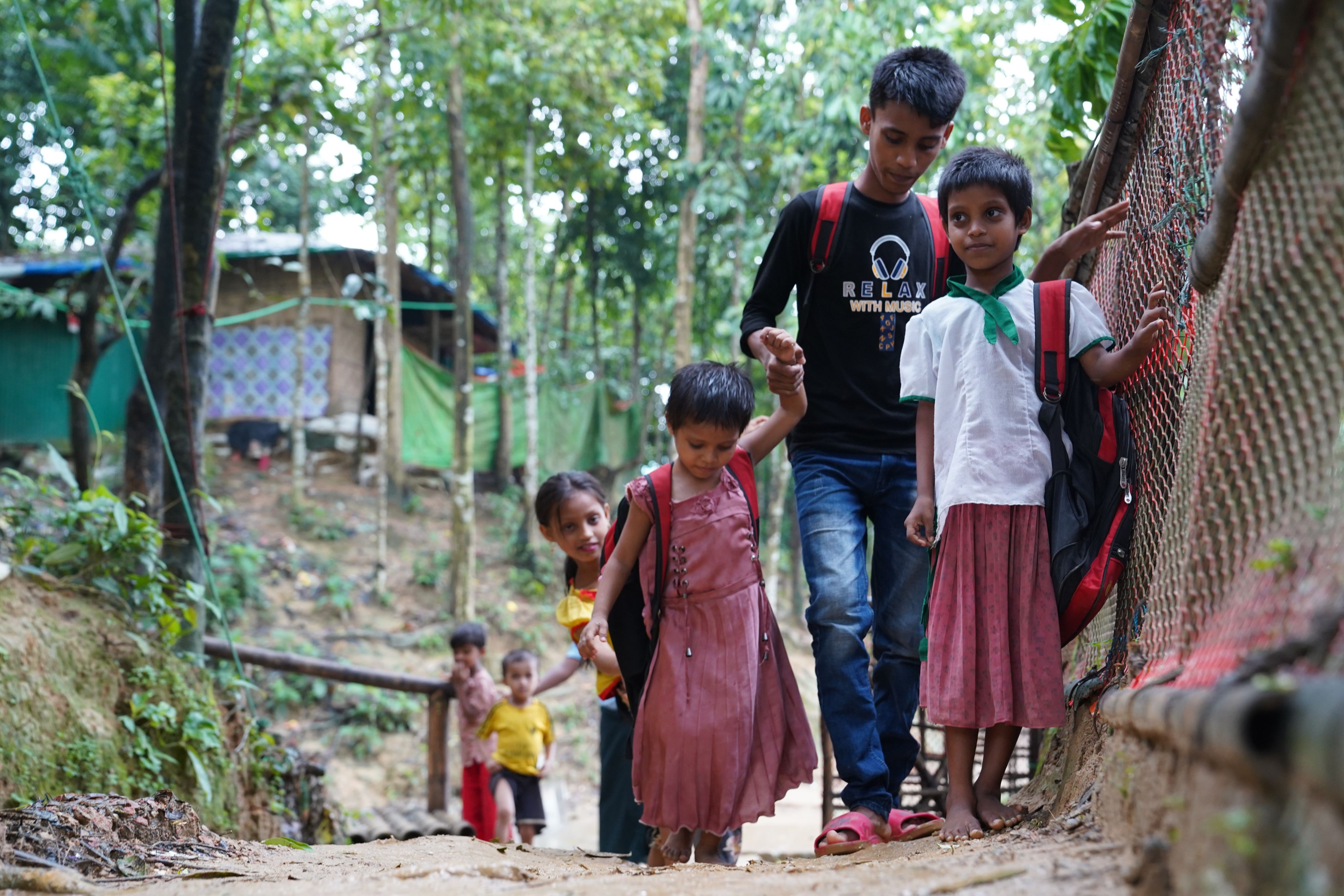
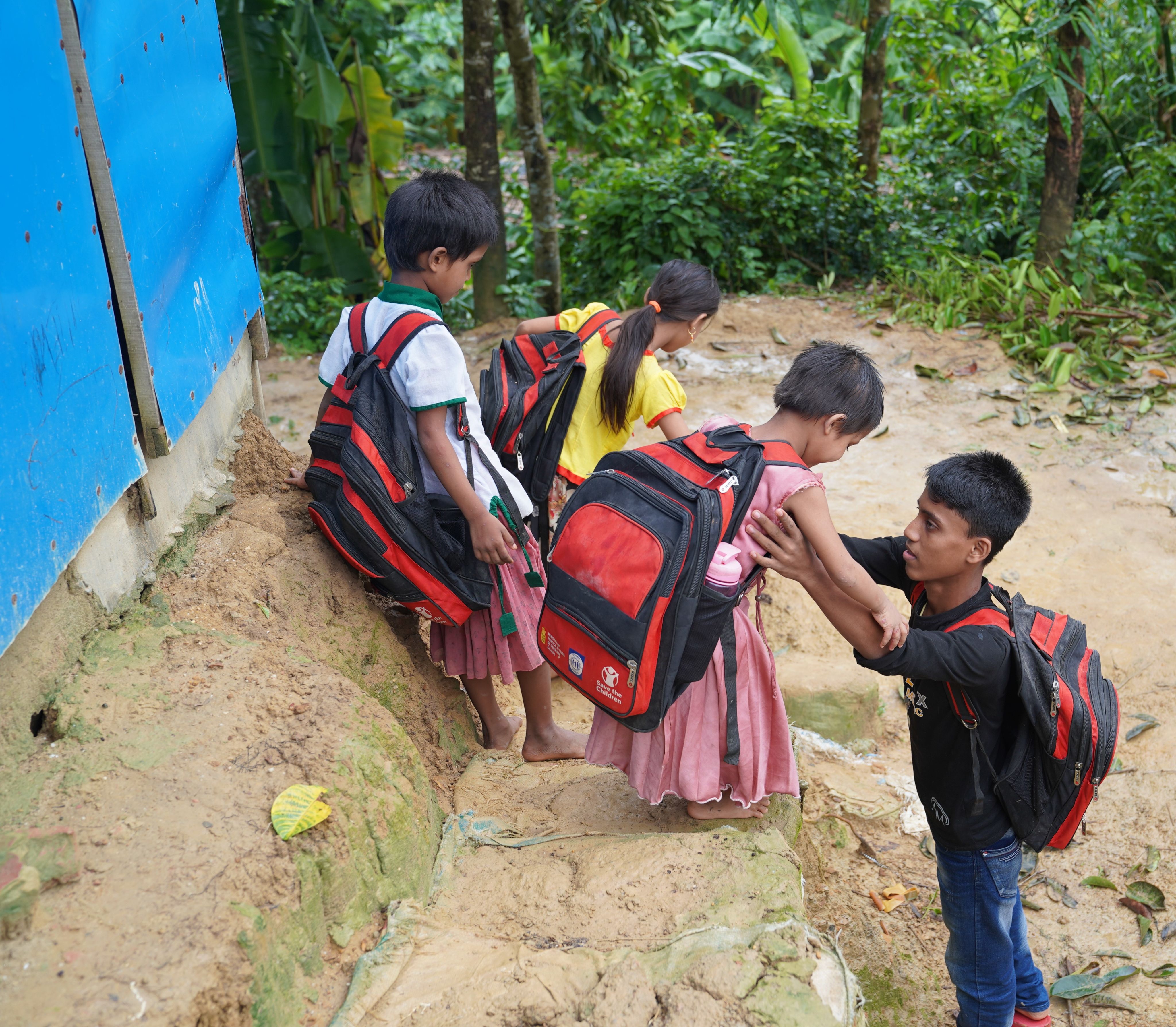
How we are helping Ayaz's family
Directly in front of the family’s house, Save the Children runs a Multi-Purpose Child and Adolescent Centre (MPCAC).
Here, Ayaz and his siblings attend activities, meetings, and sessions – such as planting trees, taking part in art competitions, and raising awareness about child marriage.
Ayaz also studies at a Learning Centre implemented by Young Power in Social Action (YPSA), a Save the Children partner organisation.
In addition, the family lives near a health centre that’s supported by Save the Children. This is where they receive medical support if needed.
Donate to our Children's Emergency Fund and support children like Ayaz.
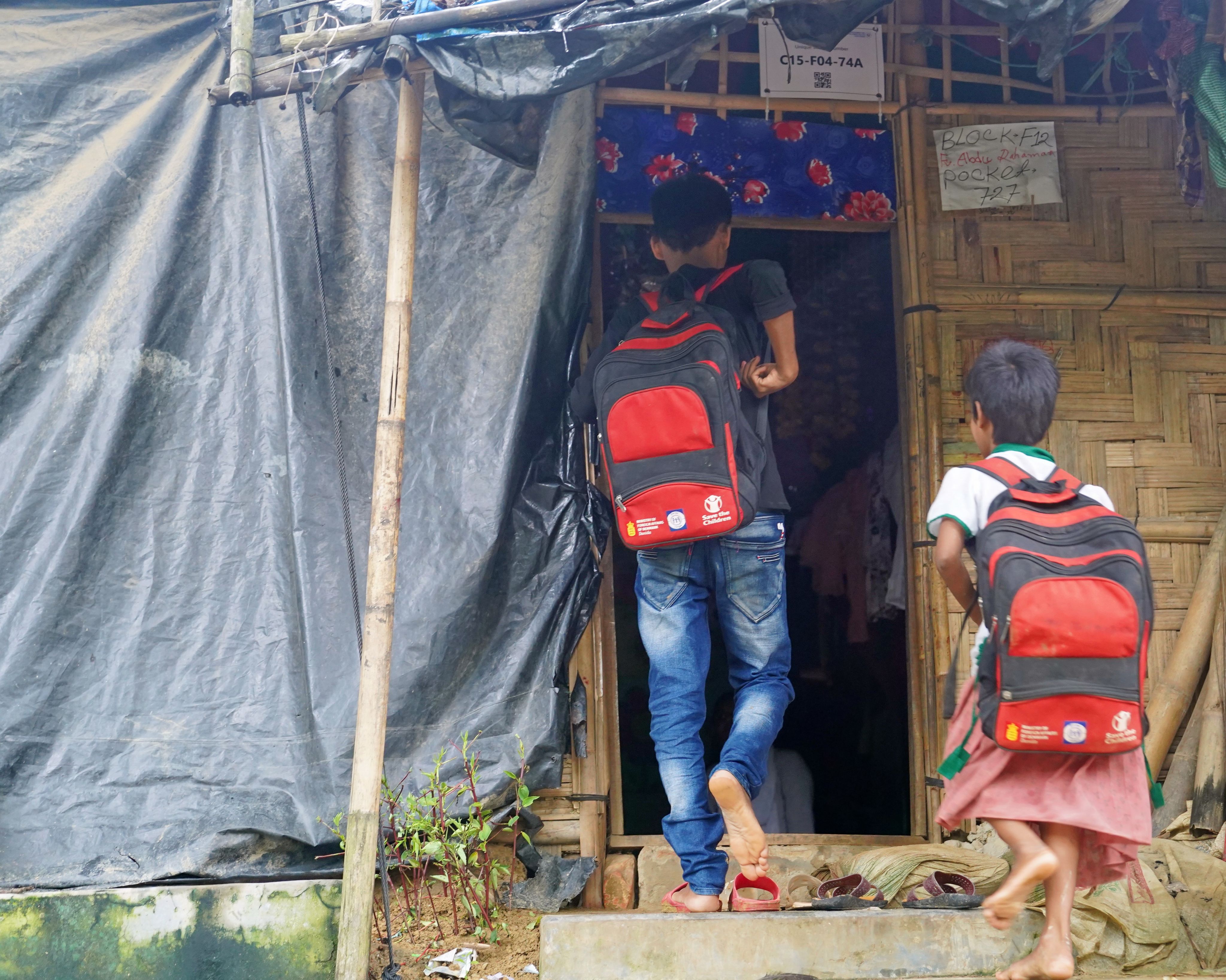
Antora's* Story


Antora*, 5, lives with her parents and four older brothers – including 12-year-old Zia* and 15-year-old Forkan*.
Due to the recent food ration cuts, Antora's family is struggling to feed themselves daily. They can no longer buy chicken, fruit, or vegetables. All they are able to buy is spinach and cress.
On the days when there isn’t enough food for everyone, the older family members skip eating. Now, the family is getting thinner day by day.

Antora*, 5, helps her mother prepare a meal with their food rations in Cox's Bazar, Bangladesh. Photo: Rubina Hoque Alee / Save the Children.
Antora*, 5, helps her mother prepare a meal with their food rations in Cox's Bazar, Bangladesh. Photo: Rubina Hoque Alee / Save the Children.
With a lack of nutritious food, Antora fell ill and caught an infection. She was admitted into a Primary Healthcare Centre that Save the Children support and was treated for malnutrition.
My daughter was very healthy earlier, [but] slowly she became slender as we can’t feed [her] good enough food [...]. She recovered and got well, but later on, when we couldn’t provide her a balanced diet, she fell ill again.
Looking forward, Antora's mother hopes to be able to afford nutritious food for her children. She dreams of them being healthy and strong as adults.

Meherun Nesa*, 40, watches her children - Antora*, 5, Zia*, 12, & Forkan*, 15 - eat a rice-based meal in Cox's Bazar, Bangladesh. Photo: Rubina Hoque Alee / Save the Children.
Meherun Nesa*, 40, watches her children - Antora*, 5, Zia*, 12, & Forkan*, 15 - eat a rice-based meal in Cox's Bazar, Bangladesh. Photo: Rubina Hoque Alee / Save the Children.
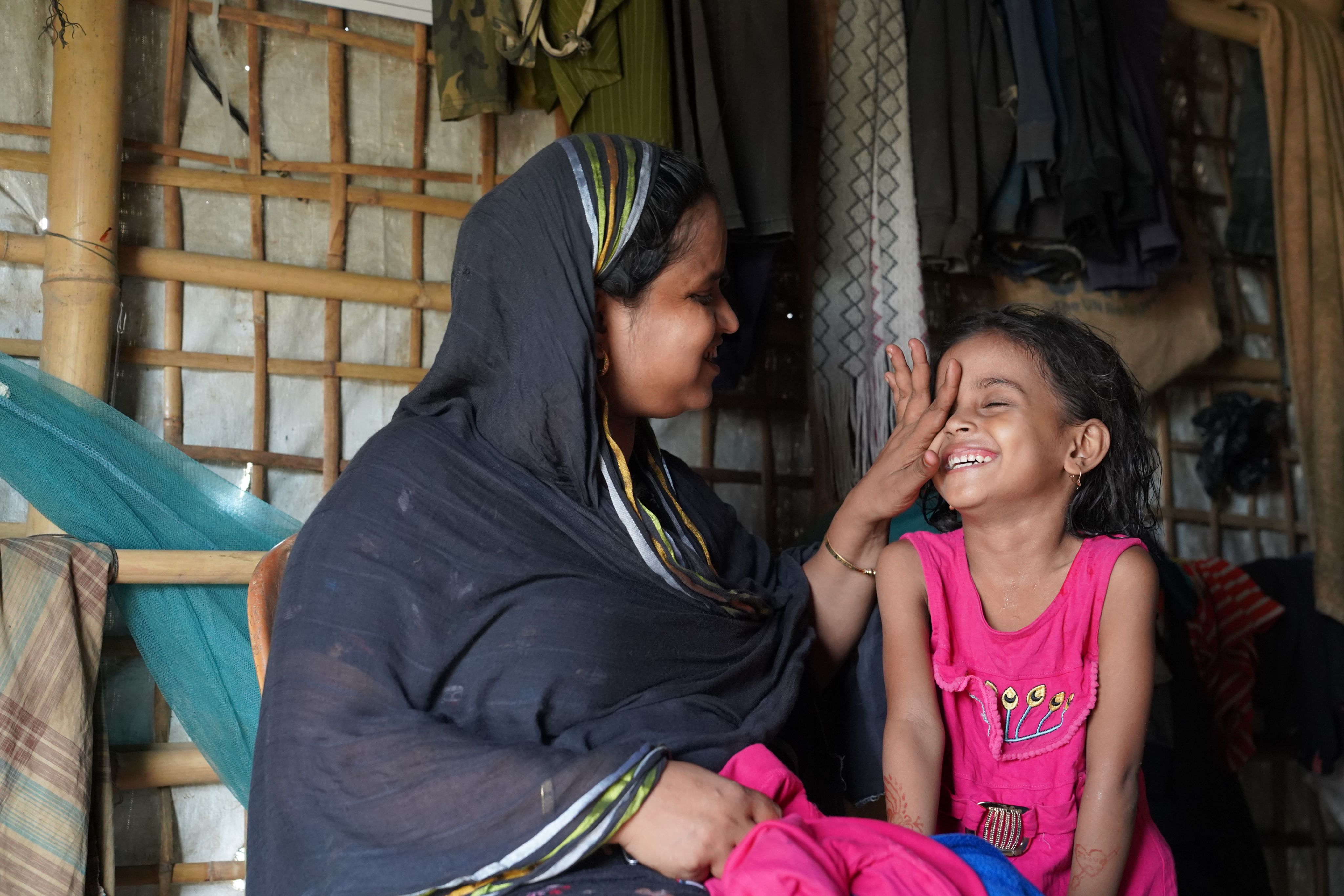
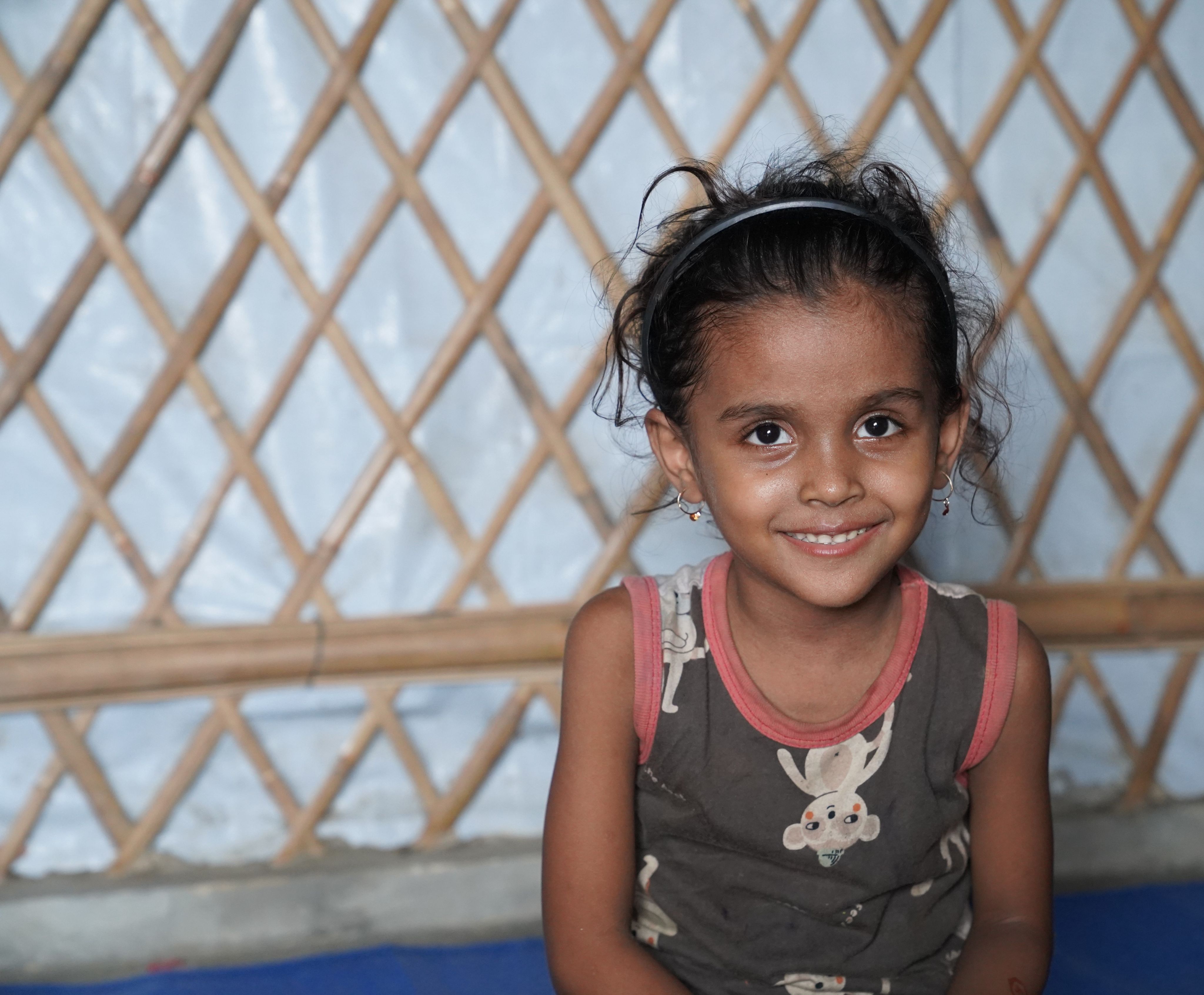
Save the Children's Response


Save the Children is one of the leading International NGOs working in Cox’s Bazar and has been there since 2012.
Save the Children is on the ground ensuring children are safe, protected and learning.
We've built health facilities, including a 20-bed Primary Healthcare Centres. These healthcare centres provide 24-hour care for sick and injured children, as well as support the safe delivery of newborns.
We've installed toilets and bathing units, and are distributing essential hygiene items so that children can stay healthy.
We're providing emotional and psychosocial support to children to help them come to terms with the traumatic experiences they've been through.
With the support of the Bangladesh Government, we've set up informal learning opportunities at 100 learning centres across Rohingya refugee camps in Bangladesh. We are also distributing teaching and learning materials so children can continue to learn.
We've set up Child and Girl Friendly Spaces where children can learn, play and just be children again.
Join us and support children living in crisis around the world by donating to our Children's Emergency Fund.
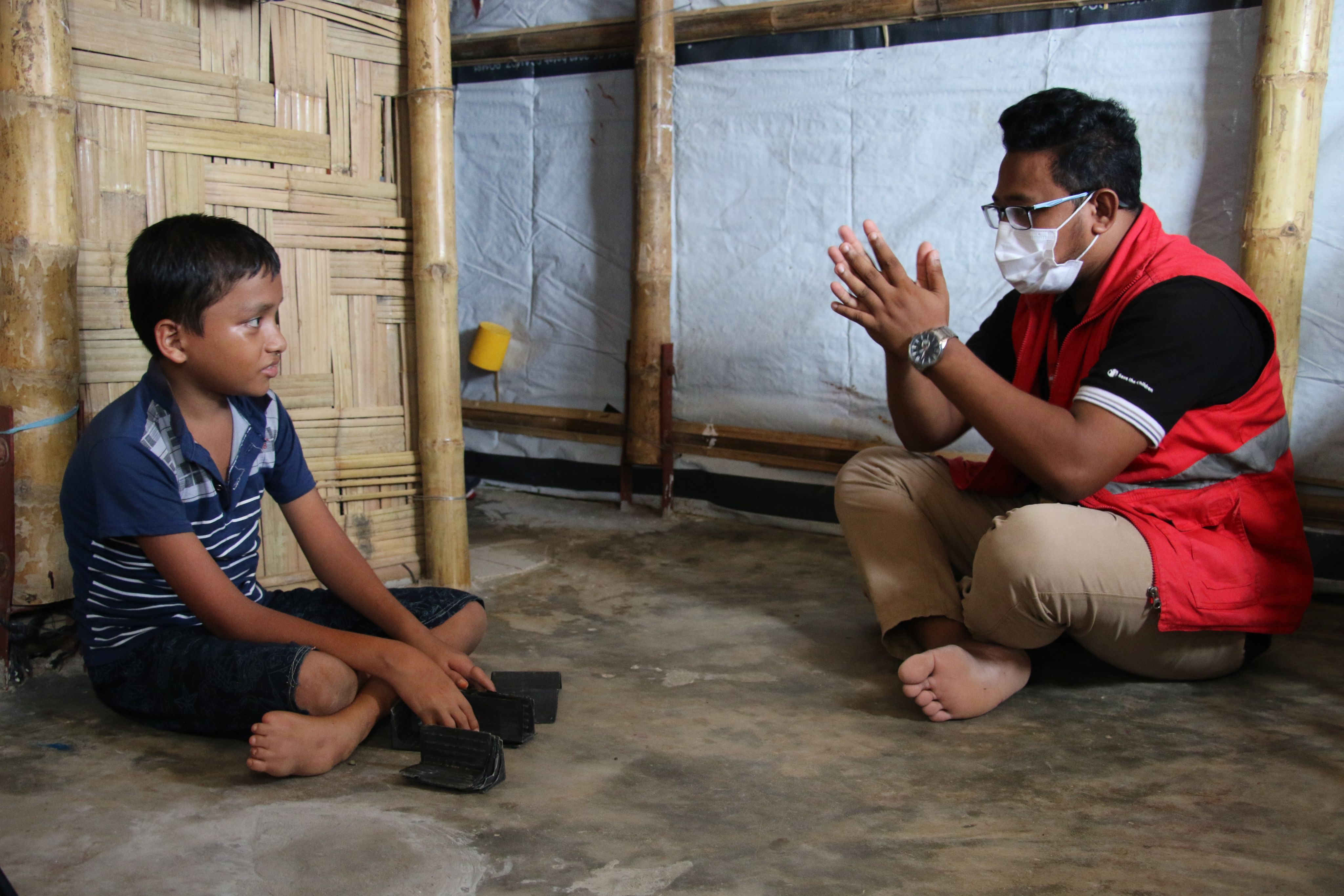
How You Can Help


Now is not the time to abandon Rohingya children and their families.
Please donate to our Children´s Emergency Fund to help children and families like Sultana, Rakib, Ayaz, and Antora today.
Your donation will allow our response teams to react quickly to emergencies in Cox's Bazar and around the world.
